The Pursuit of Less
Do you know what's cheaper than buying something on sale? Not buying something at all.
We’ve become adept at filling our homes with stuff. We're buying more than ever and we never seem to be satisfied with what we have.
Wouldn't it be nice, though, to live a simpler life, to reclaim time and energy, and to do the things that truly matter to us?
The single greatest benefit to overcoming consumerism is contentment.
When we decide to stop chasing more: more gadgets, more clothing, more everything, we break free from the cycle of dissatisfaction that consumerism stirs up.
To live is to consume. We need food in order to live. We need a roof over our heads. We need clothes to keep us warm. But consumerism becomes excessive when it extends beyond what it's needed. When we begin consuming more than is needed, boundaries are removed. Personal credits allow us to make purchases above our income level, advertisements reshape our desires around material possessions, and the consumption culture that surrounds us is making excessive consumption appear natural and normal. It promises happiness, but it never delivers, and instead it only creates a desire for more.
The story of stuff begins in our imagination and in our fantasies. That's the space where we dream about all the things that we would love to have, and what a wonderful life we could have if only we could have this stuff.
In a bid for growth, capitalism has turned everything into a consumable product, by having us rapidly replace our possessions. It’s a recipe that has worked well for shareholders but less so for the environment, and for our mental health.
During the pandemic, our consumer mindset had the time to reflect and see how superficial the industry is. We were already seeing a comeback of individuals that appreciate what they own, feeling pride in where it came from and keeping it for longer. The importance of health, family and community has been reinvigorated, but a few years down the line, seems like we have already forgotten that, and we’ve succumed again to shortsighted growth and material satisfaction.
Unless our capitalistic economy is replaced by a better system where people are more able to appreciate inner-beauty and seek for inner peace, and not from new gadgets or trendy clothing, we will struggle to learn this collectively.
We cannot shop our way to sustainability. Only by reducing product output and decreasing consumption habits, can we turn this around.
Not only are companies profiting from selling goods produced irresponsibly in the global south to more privileged countries, they’re also making the waste they’re creating someone else’s problem. As a result, we are stuck in an outdated linear system; produce, use, discard. It’s time for a rethink.
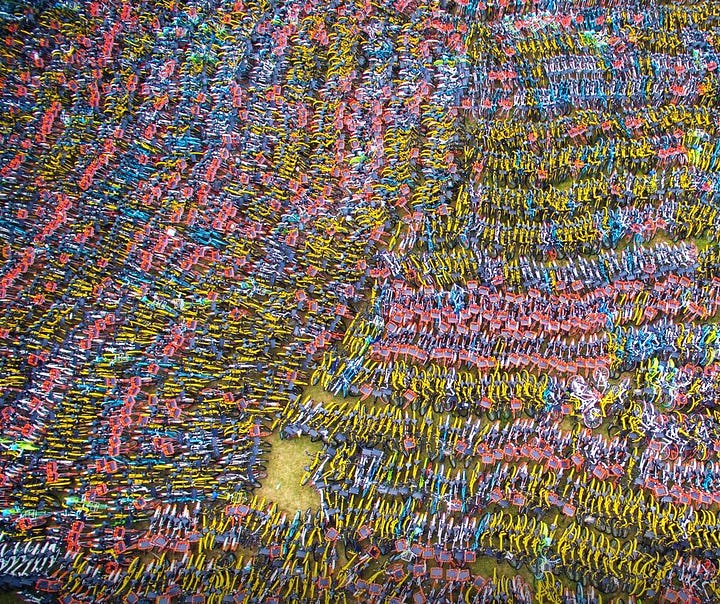
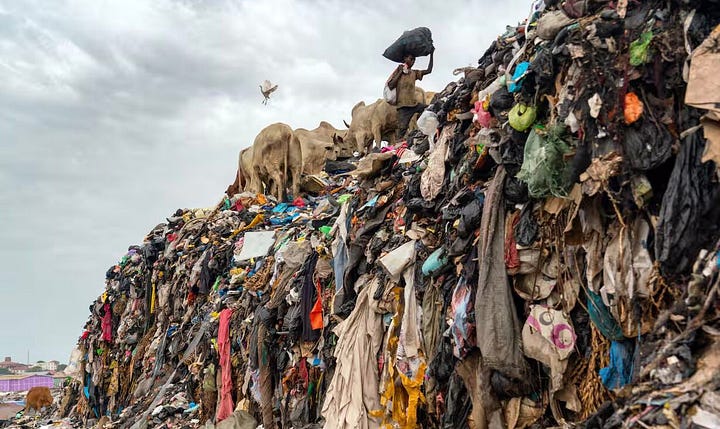
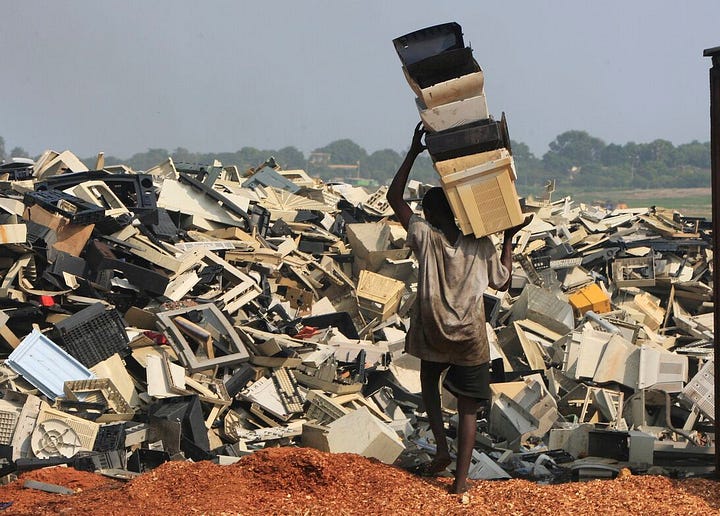
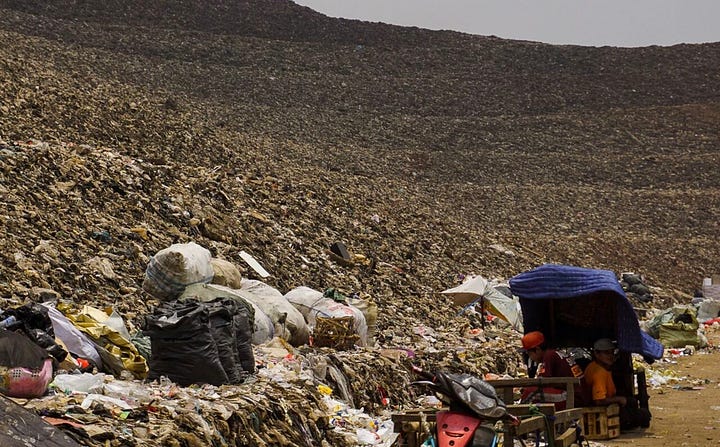
There is no throwing "away". Things don't magically disappear. They go somewhere.
As owners, our relationship to the things we have or want to purchase needs to change, turning them from a mere consumable to an object with an intrinsic personal value. We need to develop a better understanding of quality, what it takes to create them, their environmental impact, and appreciate each piece for as long as possible.
To appreciate that extending a product’s lifetime slows down consumption and production, reduces waste and in turn lowers the environmental impact.
To realise that we don’t really want stuff, new clothes or food delivered to us instantly.
To understand that what we actually want is love, community, a sense of belonging and joy; but we’ve been taught the only way we achieve these essential components of life is to buy them.
Nothing you buy will transform the hole into a whole.

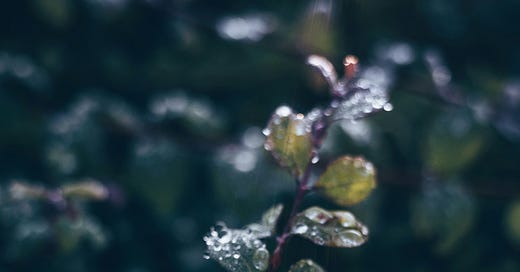



I didn’t want this article to end! I enjoyed every single sentence! The content is so relatable and inspiring, offering valuable insights on how to live a better life for ourselves and the world around us.